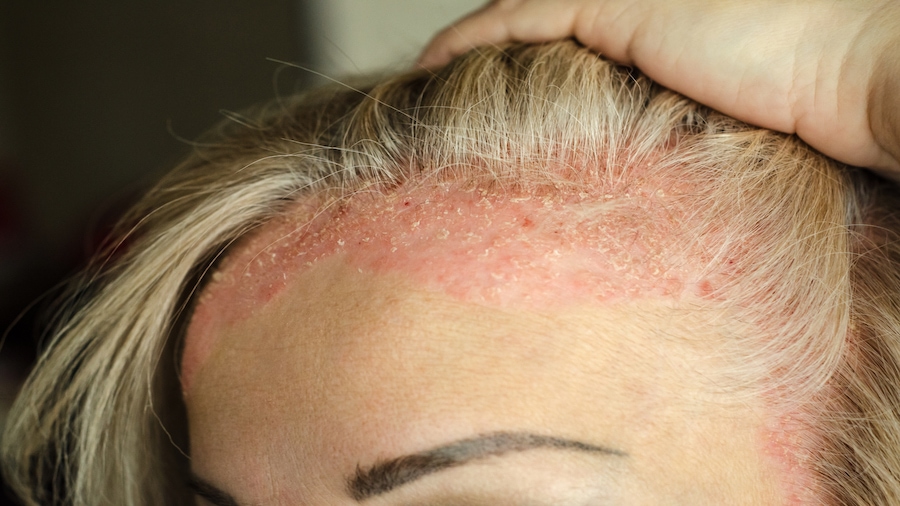Did You Know That Stress Can Cause Psoriasis Flare-Ups?
Psoriasis, a chronic skin condition, is more than just a cosmetic concern. It’s an immune-mediated disease that results in the rapid buildup of skin cells, leading to scaling, inflammation, and redness. While the exact cause of psoriasis remains unknown, numerous factors are known to trigger flare-ups, with stress being one of the most significant.
The Connection Between Stress and Psoriasis
Stress is a natural part of life, but when it becomes chronic, it can wreak havoc on your body. Studies have shown that stress can exacerbate autoimmune conditions like psoriasis. When you're under stress, your body releases hormones like cortisol, which can weaken the immune system and lead to inflammation. For individuals with psoriasis, this heightened inflammatory response can trigger or worsen symptoms.
How Does Stress Affect Psoriasis?
Immune System Activation: Chronic stress can cause an overactive immune response, leading to inflammation and accelerated skin cell production.
Behavioral Factors: Stress often leads to unhealthy habits like poor diet, lack of sleep, and smoking, which are known psoriasis triggers.
Skin Barrier Disruption: High stress levels can weaken the skin’s natural barrier, making it more susceptible to flare-ups.
Research from the Cleveland Clinic supports these findings, emphasizing the link between stress and immune system dysregulation.
Signs of Stress-Induced Psoriasis Flare-Ups
It’s essential to recognize the signs of a stress-related psoriasis flare-up early to manage it effectively. Common symptoms include:
Increased Scaling: Rapid buildup of skin cells leads to thicker, more prominent scales.
Worsened Redness: A noticeable increase in redness and inflammation.
Heightened Itching: Stress can make itching more intense and persistent.
New Plaques: Development of plaques in areas previously unaffected.
If you’re noticing these symptoms, it might be time to assess your stress levels.
Managing Stress to Prevent Psoriasis Flare-Ups
Managing stress is crucial for individuals with psoriasis. Here are some effective strategies to help you stay calm and reduce the likelihood of flare-ups:
1. Practice Relaxation Techniques
Incorporate activities that help you relax, such as:
Yoga: Combines physical poses, breathing exercises, and meditation.
Meditation: Encourages mindfulness and reduces anxiety.
Deep Breathing: Helps lower cortisol levels.
2. Stay Active
Regular physical activity can:
Boost mood by releasing endorphins.
Reduce inflammation.
Improve overall skin health.
3. Seek Professional Support
Consider seeing a therapist or counselor to develop coping strategies for chronic stress. Cognitive-behavioral therapy (CBT) has been shown to be particularly effective.
4. Healthy Lifestyle Choices
Balanced Diet: Focus on anti-inflammatory foods like leafy greens, fatty fish, and nuts.
Adequate Sleep: Aim for 7-9 hours of quality sleep each night.
Limit Alcohol and Smoking: Both can worsen psoriasis symptoms.
For more tips on stress management, visit Healthline.
Psoriasis Treatment Options
While managing stress is essential, it’s equally important to follow a comprehensive treatment plan for psoriasis. Here are some common approaches:
1. Topical Treatments
Corticosteroids: Reduce inflammation and scaling.
Vitamin D Analogues: Slow skin cell growth.
Coal Tar: Eases itching and scaling.
2. Phototherapy
Controlled exposure to ultraviolet (UV) light can:
Slow skin cell turnover.
Reduce scaling and inflammation.
3. Systemic Medications
For severe cases, oral or injectable medications like biologics can target specific parts of the immune system to control symptoms.
The Role of Dr. Pretty Singla in Psoriasis Care
If you’re struggling to manage psoriasis, consider consulting a dermatologist like Dr. Pretty Singla, who specializes in treating chronic skin conditions. At Pretty Skin Clinic, she offers personalized care plans tailored to your specific needs. With a focus on evidence-based treatments and patient education, Dr. Singla ensures that every patient receives the highest standard of care.
To learn more about her services, visit her website at Pretty Skin Clinic.
When to See a Dermatologist
If your psoriasis symptoms are significantly impacting your quality of life or if over-the-counter treatments aren’t effective, it’s time to seek professional help. A dermatologist can:
Identify triggers, including stress.
Develop a customized treatment plan.
Monitor progress and adjust treatments as needed.
Dr. Pretty Singla’s expertise in psoriasis care makes her a trusted choice for patients seeking relief from this chronic condition.
Final Thoughts
Stress is an unavoidable part of life, but its impact on psoriasis shouldn’t be underestimated. By recognizing the connection between stress and flare-ups, managing stress effectively, and seeking professional care when needed, you can take control of your symptoms and improve your quality of life.
For more information and expert guidance, don’t hesitate to reach out to a qualified dermatologist like Dr. Pretty Singla.
Disclaimer: The information provided is for informational purposes only and does not constitute medical advice. Readers should consult with a qualified healthcare professional for diagnosis and treatment.

Comments
Post a Comment